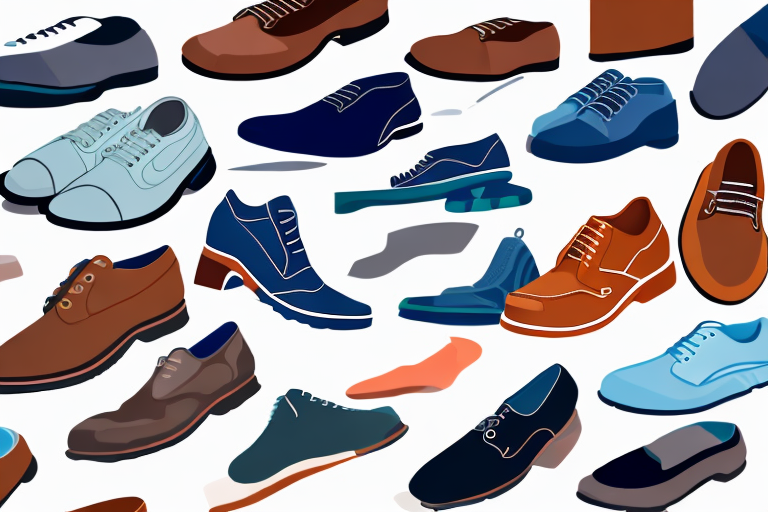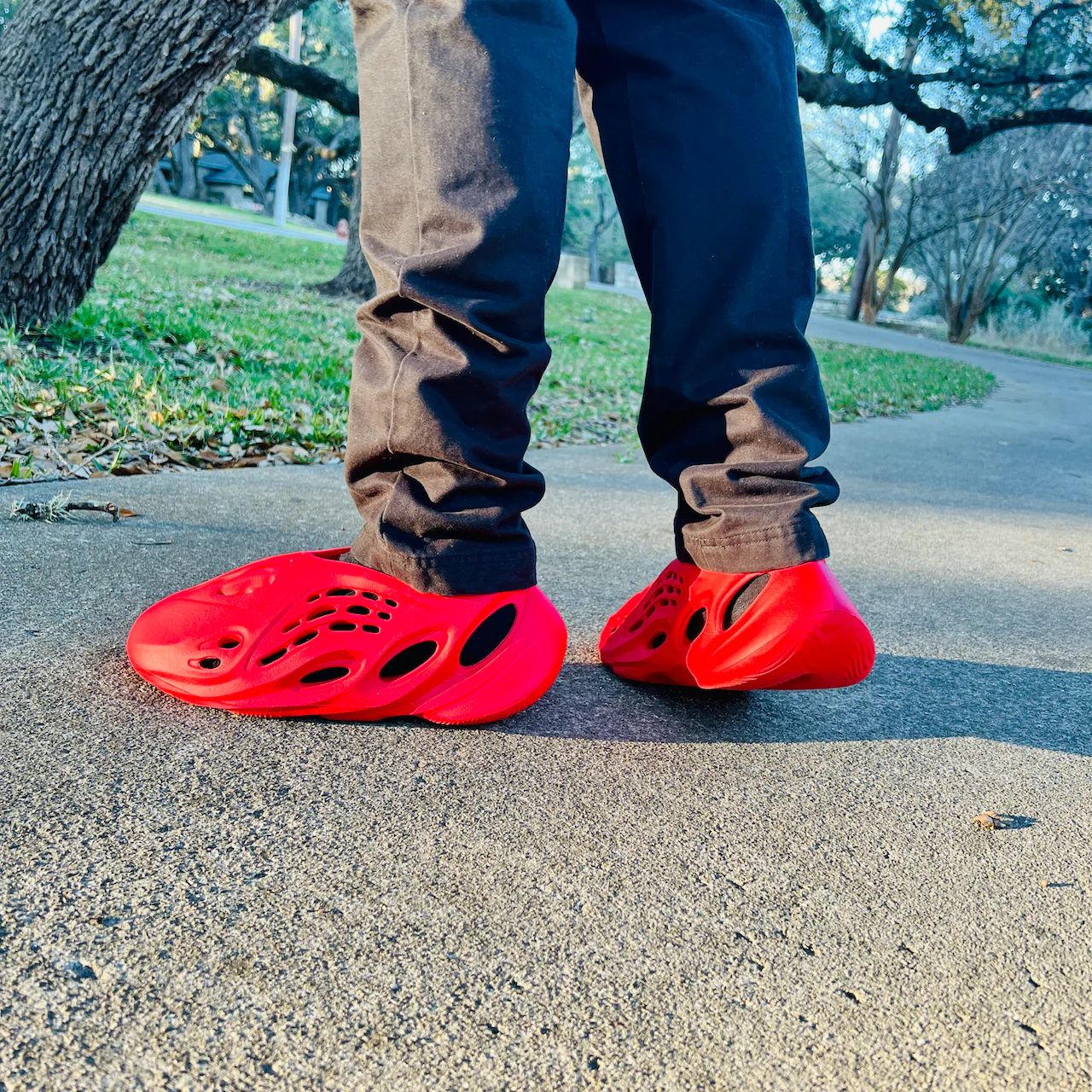
The Best Sustainable Shoes for a Greener Footprint
In today's eco-conscious world, sustainable fashion is gaining popularity, and for good reason. Clothing and accessories made with sustainable materials make a positive impact on the environment while being stylish and functional. And that includes shoes. The footwear industry contributes to environmental degradation, but if you choose sustainably made shoes, you can help reduce your carbon footprint. In this article, we'll explore the best sustainable shoes available and why they matter.
Why Sustainable Shoes Matter
Traditionally, shoes are made with materials that are non-biodegradable, non-renewable, and resource-intensive, such as petroleum-based plastics and synthetic leather. Not to mention, the production process itself is energy-intensive and polluting. On top of that, the disposal of worn-out shoes presents a challenge, with conventional footwear ending up in landfills where they take centuries to decompose. This situation has significant implications for the environment and human health alike. Sustainable shoes, on the other hand, are made with renewable, organic, recycled, or biodegradable materials, reducing the impact on the environment.
The Environmental Impact of Traditional Footwear
The production of conventional footwear is an unsustainable process that contributes to environmental pollution and greenhouse gas emissions. According to the Sustainable Apparel Coalition, shoes account for around seven percent of the carbon footprint of the clothing industry. The use of non-biodegradable materials, such as polyvinyl chloride (PVC) and polyurethane (PU), contributes to the production of toxic chemicals that contaminate air and water, harming both humans and wildlife.
Furthermore, the production of traditional leather shoes has a significant environmental cost. The leather industry consumes vast amounts of water, generating toxic waste, and contributing to deforestation. The tanning process used to create leather shoes involves the use of harmful chemicals such as chromium, which can cause serious health problems for workers and pollute the surrounding environment.
Benefits of Choosing Sustainable Shoes
When you opt for sustainable shoes, you support ethical and eco-friendly practices while reducing your carbon footprint. Sustainable shoe brands typically use materials that are biodegradable or recyclable, reducing waste. They also tend to use production processes that minimize harm to the environment and promote ethical labor practices. Additionally, sustainably made shoes tend to be more durable and of higher quality, lasting longer than typical, fast-fashion shoes that need to be replaced often.
By choosing sustainable shoes, you can also support small businesses and local artisans who prioritize eco-friendly practices. Many sustainable shoe brands work with local communities to source materials and produce shoes in a way that benefits both people and the planet.
Finally, sustainable shoes can be fashionable and trendy, proving that style and sustainability can go hand in hand. Many sustainable shoe brands offer a wide variety of styles, from classic sneakers to trendy sandals, ensuring that you can find a pair of shoes that fits your personal style.
Top Sustainable Shoe Brands to Consider
Now that we've explored why sustainable shoes are essential, let's dive deeper into some of the top sustainable shoe brands you should consider. These brands prioritize eco-friendly materials, ethical production practices, and stylish designs.
Allbirds: Comfort Meets Sustainability
Allbirds, known for its minimalist yet comfortable designs, is a leader in sustainable footwear. The company uses a combination of natural and recycled materials, including merino wool, eucalyptus bark, and recycled plastic bottles, to create footwear that's both stylish and eco-friendly. Allbirds even uses sustainable packaging made from 90% recycled cardboard. The company's commitment to sustainability goes beyond its products and extends to its operations. Allbirds has set a goal to be carbon neutral by 2025 and has implemented sustainable practices in its stores and offices.
Veja: Stylish and Eco-Friendly Sneakers
Veja, a French shoe brand, is known for its trendy and environmentally friendly sneakers. With a commitment to transparency, Veja sources materials from organic and fair-trade sources to create shoes that are fashionable and ethical. The company also prioritizes responsible production practices, using eco-friendly techniques, avoiding toxins, and promoting ethical labor practices. Veja's sneakers come in a variety of colors and styles, making them a versatile choice for any outfit.
Rose In Good Faith: Turning Plastic Waste into Chic Flats
Rose In Good Faith, a Los Angeles-based brand, is all about recycling. The company creates its shoes out of recycled unused sex toys that are melted to create a unique blend of material with unbleached EVA. In addition to its sustainable materials, Rose In Good Faith also prioritizes ethical production practices, partnering with factories that pay fair wages and provide safe working conditions.
Nisolo: Ethically Made Leather Shoes
Nisolo is a sustainable brand that makes luxury leather shoes and accessories. The company uses vegetable-tanned leather, which is not only biodegradable but also reduces the use of chemicals in the production process. Nisolo also works with artisans in Peru, ensuring living wages and cultivating local craft traditions. Each piece is handcrafted, meaning that each pair of shoes is unique and made to last. Nisolo's commitment to sustainability extends beyond its materials and production practices. The company has set a goal to become carbon neutral by 2030 and has implemented sustainable practices in its offices and stores.
Reformation: Sustainable Shoes for Every Occasion
Reformation, known for its stylish, sustainable clothing, also offers a range of shoe options. The brand uses a variety of eco-friendly materials, such as recycled plastics, repurposed leather, and organic cotton, to create shoes that are not only sustainable but also versatile and fashionable. Reformation produces its shoes in ethical factories and promotes sustainable practices, such as recycling and reducing waste. In addition to its commitment to sustainability, Reformation also prioritizes inclusivity, offering a range of sizes and styles to fit a diverse range of customers.
When shopping for sustainable shoes, it's important to consider the materials, production practices, and overall impact of the brand. These top sustainable shoe brands offer stylish and eco-friendly options that prioritize both fashion and sustainability. By supporting these brands, you can make a positive impact on the environment and promote ethical production practices.
Materials to Look for in Sustainable Shoes
While there are numerous materials used in sustainable shoe production, some are particularly eco-friendly. In this article, we will explore some of the most sustainable materials used in shoe production.
Recycled and Natural Rubber
Recycled and natural rubber are more sustainable alternatives to synthetic, petrochemical-derived rubber. By using recycled rubber, we can repurpose materials that would otherwise end up in landfills. Likewise, natural rubber production is more energy-efficient and generates fewer emissions. Some companies, such as Veja, use wild rubber from the Amazon rainforest, which supports the local communities and helps protect the rainforest from deforestation.
Organic Cotton and Hemp
Organic cotton and hemp are sustainable alternatives to conventional cotton because they require fewer pesticides and fertilizers. Cotton production, in particular, is one of the most environmentally damaging industries globally, with vast swaths of land transformed into monocultures. Organic cotton and hemp production can create more sustainable ecosystems. Additionally, hemp is a versatile material that can be used in various parts of the shoe, such as the sole or upper.
Vegan Leather Alternatives
Leather can come at a high environmental cost, with leather production requiring potentially hazardous chemicals and intensive land use. Vegan leather, made from materials such as pineapple fibers or mushroom leather, is a more sustainable option. Piñatex, a leather alternative made from pineapple fibers, is not only eco-friendly but also supports pineapple farmers in the Philippines.
Recycled Plastics and Fabrics
Recycling plastics and fabrics can prevent waste and reduce resource consumption. Earlier in this article, I mentioned Rothy's, which is famous for its use of recycled plastic water bottles. Brands like Patagonia and Stella McCartney are committed to using recycled materials in their products. In addition to recycled plastics, some companies use recycled fabrics, such as ECONYL, a regenerated nylon made from ocean waste.
When shopping for sustainable shoes, it's important to look for certifications such as the Global Organic Textile Standard (GOTS) or the Leather Working Group (LWG) certification. These certifications ensure that the materials used in the shoes are sustainable and that the production process is environmentally responsible.
By choosing sustainable materials in our shoes, we can reduce our environmental impact and support companies that prioritize sustainability.
How to Care for Your Sustainable Shoes
To get the most out of your sustainable shoes, it's essential to take good care of them. Your shoes will last longer and maintain their appearance if you follow these tips:
Cleaning Tips for Different Materials
Each kind of material needs different cleaning methods. For example, leather requires moisturizing to maintain its suppleness, while rubber needs to be cleaned with mild soap and water. Do some research into how to clean your shoes, and avoid harsh chemicals that may damage the materials.
Proper Storage to Extend Shoe Life
Storing shoes properly when they're not in use can help maintain their shape and prevent damage. For example, keep your leather shoes indoors and away from humidity and extreme temperatures to prevent cracking.
Repair and Maintenance Ideas
If your shoes need repair, don't throw them out. Instead, look for businesses that specialize in shoe repair or try fixing them yourself. There are plenty of resources out there to help you keep your shoes in good condition so that they last as long as possible.
Conclusion
In conclusion, sustainable shoes play a key role in protecting the environment and our health. By choosing footwear made with biodegradable, recycled or renewable materials, we can reduce the impact of the footwear industry on our planet. Additionally, by supporting sustainably produced products, we promote ethical labor practices and encourage innovation towards more responsible and eco-friendly production practices. Take a look at some of the brands and materials listed here, and make a conscious decision next time you need shoes. Choosing sustainable options will make a difference in your footprint on the Earth, the environment, and ultimately making the world a better place.



